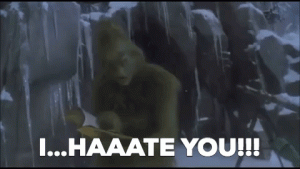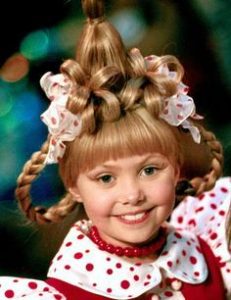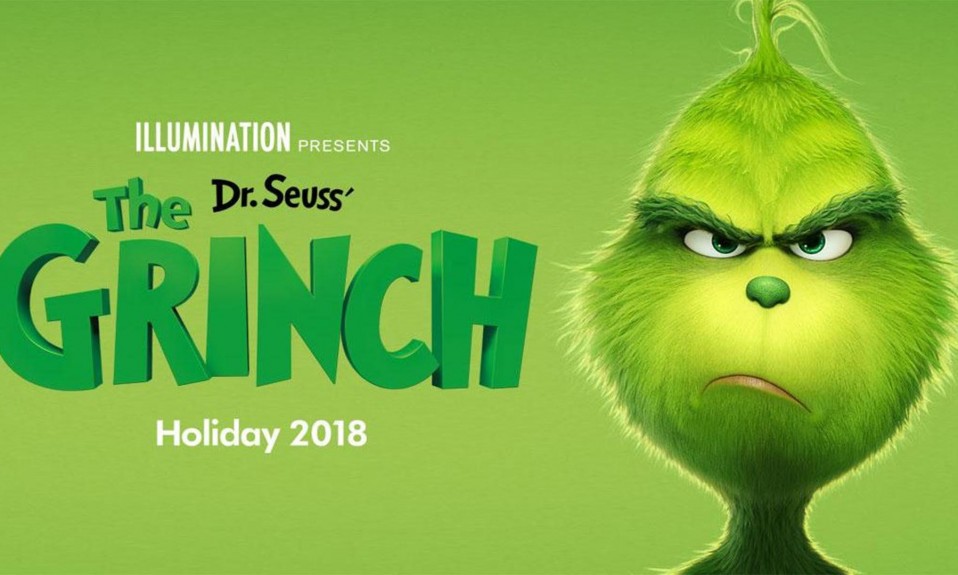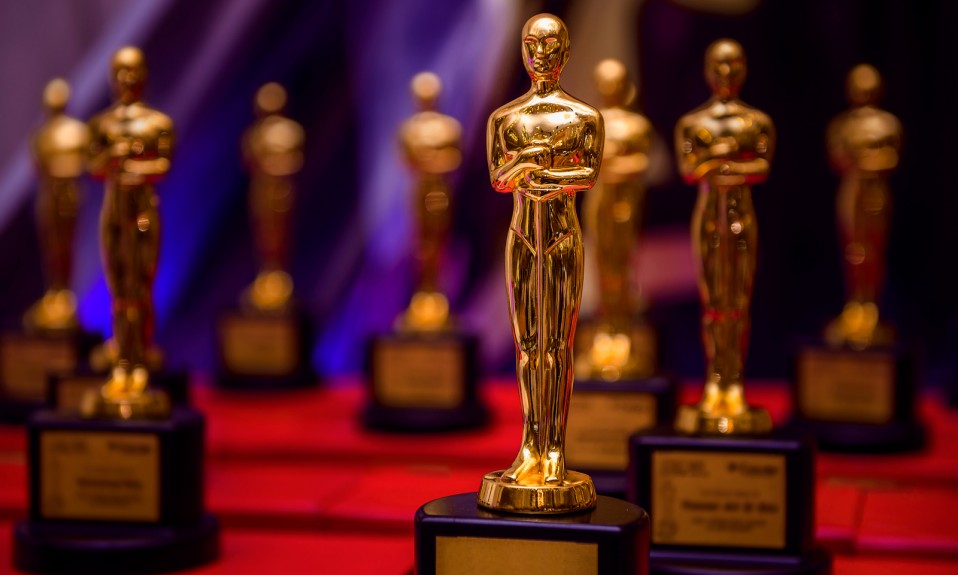Christmas is fast approaching and to celebrate, Illumination Entertainment has released their take on the classic Grinch story. The original Dr. Seuss book about a reclusive grump who wants to steal Christmas is just as inseparable from the modern identity of Christmas as Santa Claus and Scrooge.
The story has received three high profile adaptations over the years. The 1966 Chuck Jones cartoon starring horror legend Boris Karloff as the titular green menace. The Ron Howard directed live-action retelling in 2000, starring Jim Carrey, and 2018’s animated offering with Benedict Cumberbatch in the lead. But with so many different versions which one is the best?
Today I will compare the different grinch films by breaking them down into categories and analyzing which version did the best job with their portrayal of the Grinch and Cindy Lou. As well as which version had the better music, the best production value, and which version tells the story the best? With that said, let’s dive into this festive feast.
Who is the best Grinch?
The Grinch, of course, gets the star treatment in all three films and it is hard to choose between the players. Karloff’s Grinch is an angry, mischievous trickster. Carrey’s version is a bombastic ball of energy. The child in all of us that never quite grew up. And Cumberbatch is a modern-day cynic who just wants Christmas to stop getting so big. Since we must choose though, I would say Karloff’s version is the best of the three.
Cumberbatch’s version is just too nice to accurately represent the character of the Grinch. His social interactions are too awkward and his kindness to animals over people makes him seem like a lonely single guy resentful that his date never called back, rather than the antithesis of all thing’s holly and jolly. And Carrey’s version, although fun, is just Jim Carrey, playing Jim Carrey. Karloff being a horror star makes the Grinch feel imposing and hateful, but he also manages to excel with the softer side of the character during his transformation and makes it all feel genuine. Karloff feels like the truest representation of the character as he was intended to be.
Winner: How the Grinch Stole Christmas (1966)

Who is the best Cindy Lou?
This category is interesting because in the original story Cindy Lou Who is not a pivotal character. She is merely emblematic of childhood innocence at Christmas. As such her part in the 1966 short is minor. But with subsequent adaptations, Cindy Lou has become as important to the narrative as the Grinch himself.
In the 2000 version, Taylor Momsen does a good job at being the voice of reason to the grownups old-fashioned outlook. She even saves the day in the end, convincing the Grinch and the rest of Whoville that Christmas is about people, not presents. Meanwhile the 2018 Cindy Lou is trying to help her family through a tough time in their lives. Her mum is working hard to provide for her and her brothers, and she only wants her mum to be happy. All three versions are interesting or narratively fitting, but Cindy Lou in the 2000 version is the clear winner.
Unlike her 1966 counterpart, she is actively involved with the plot, being the audiences primary POV. And unlike the recent version, her character arc is integral to the proceedings. Going from disillusionment with the commercialism of Christmas to having her faith restored when everyone realizes, she was right after all. The new version is an interesting reflection of the attitudes of children in single-parent families. But her story feels like padding because without it the story would have largely remained the same. Giving the 2000 version the clear win.
Winner: How the Grinch Stole Christmas (2000)

Which version has the best music?
A part of the Grinch’s legacy that goes underacknowledged is the use of music. All the films use music to effectively place us in the characters heads, give a sense of place and help set the general mood of a Christmas tale. However, the 2018 version fails instantly because of its persistent use of gimmicky pop music throughout the film. This instantly takes the audience out of the experience as the setting ceases to be fantastical, instead becoming a merchandising exercise. The presence of classic crooner hits like Nat King Cole’s “The Christmas Song” attempts to win us back but unfortunately, it comes too late. The 2000 version also has a few modern songs in there, but it feels less egregious, as commercialism is a central aspect of the story. As well as this the updates to the songs “You’re a mean one, Mr. Grinch” and “Welcome Christmas” are pleasing to listen to and the addition of the song “where are you Christmas?” for the character of Cindy Lou nicely complements her character’s arc. But I would trade all of that for the subtlety of the 1966 soundtrack. Sometimes simplicity is best. There is no pop music to take you out of the fantasy, no overblown production, just charming lyrics, the smooth tones of Thurl Ravenscroft and the MGM chorus; simple melodies that make the story feel like a folktale passed down from generation to generation. It’s timeless and has yet to be beaten.
Winner: How the Grinch Stole Christmas (1966)

Which version is better made overall?
This one really comes down to personal preference. None of the Grinch movies are badly produced. Chuck Jones’ version has the charmingly lucid animation one expects of old Looney Tunes shorts. The Ron Howard version has impressive (if slightly creepy) makeup work and impressive production design courtesy of Michael Corenblith. And the new film being from Illumination contains slick modern animation and very pleasing character designs. But again, since I must make a choice while both animations look nice, the 2000 version just edges them out for me.
Not only for the sheer gall it took to try and realize Dr. Seuss’ drawings in live-action but also for the imagination on display in the set design. The Grinch’s lair looks straight out of a 1920’s German expressionist horror film. The muted colours give Whoville a tinge of melancholy despite the festive trappings, perfectly fitting with Cindy’s, feelings. And the minutia that mixes the fantastical with just enough modern that it isn’t distracting makes for a film that feels very much in tune with our world while also being nothing like it. And for me, that just gives it the edge.
Winner: How the Grinch Stole Christmas (2000)

Which version tells the story the best?
And now we must decide which film delivers its narrative more effectively. All the films use a narrator to deliver the story. But all the films do different things with the source material. The 1966 version is a straight adaptation of the story with Boris Karloff providing the narration and voices for the characters. The 2000 version mixes in social commentary about the modern world’s disillusionment with Christmas; the voice of Sir Anthony Hopkins. While the new version aims itself at modern children who have grown up with the continual expansion of Christmas and had to contend with its impact on their families. Accompanied by Pharrell Williams voice over. So which film does it best?
The 1966 version is as stated as a faithful adaptation. No side plots or updates, just an animated version of Dr. Seuss story. And Karloff’s grandfatherly voice gives the special an extra layer of warmth. However the special is on the short side because of its adherence to the text. With some of the slower animated sections feeling like padding to fit the necessary time slot. The 2000 film focuses on the Grinch’s backstory, explaining his hatred of Christmas and taking jabs at how overblown the Christmas season has become. Which is surprisingly relevant today. And Anthony Hopkins is a fine complement to Karloff’s original narrator role. Even surpassing him in some regards, particularly in dramatic flair. But the backstory takes away from the simplistic mystery of the Grinch. His heart was two sizes too small was all the reason we needed for his hatred of Christmas. The adage of childhood bullying turns the Grinch into an antihero rather than a villain and makes most of the humans unlikable as a result. So the final revelation never quite rings true. These people have spent most of the preceding film tormenting the Grinch, yet he instantly forgives them. In summary, the story is a little confused and feels too mean for what the story is supposed to teach. Lastly, in the new version, the folktale vibe is subtly diverted. Pharrell’s voiceover sounds more like a friend than an elder. And the decision to deal with themes of neglect and generational doubts is an effective choice for this moment in time. But it never feels like it amounts to anything. Pharrell’s voice is a distraction due to his status as a musician, not an actor and the themes as previously mentioned feel like window dressing more than anything.
So, in the final analysis, all of the stories have flaws and their strengths but the only adaptation where I would argue it’s merits outweigh its flaws is the short version. Due to its concise nature, lack of painful extraneous diversions and focusing simply on telling a charming story in a way that appeals to all, not just to misanthropes or single-parent families.
Overall Winner: How the Grinch Stole Christmas (1966)

Final Thoughts
This article was not intended to discredit of the new Grinch movie. Illuminations the Grinch has some good aspects to it. The voice cast all do their jobs well, with Benedict Cumberbatch being the best part of the film. The visual design is pleasing and some of the story updates are a nice change of pace. But ultimately what it comes down to is the new Grinch movie never entirely justifies its own existence.
For an entertaining movie, with lush production design, modern social commentary and a well-rounded female character, with Cindy Lou, stick with the Carrey version. And for the purest representation of the original story, with perfect music, charming animation and the best version of the Grinch go with the Karloff animation.
Also Read: Alternative Christmas Movies





![Netflix Sci-Fi [Source Variety]](https://bigpicturefilmclub.com/wp-content/uploads/2021/01/Netflix_Source_Surrey_Now_Leader-958x575.jpeg)








Loved all your insights. Every Grinch movie makes me feel “Christmasy.”